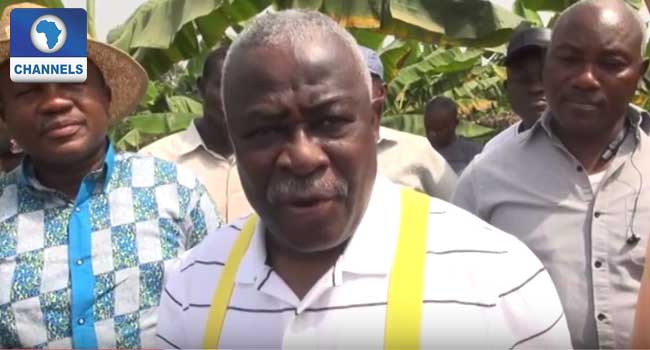
He said that the provision of the necessary infrastructure for seamless production and transportation would add great value to the sector.
He was speaking in Ogun state, southwest Nigeria, while visiting a private farm at Iboro in Abeokuta North Local Government Area of the state.
“I think the nation has awoken to the fact that oil does not feed people.
“We have not gotten better; some people have gotten richer but the population has gotten poorer.
“We have to go back to basics and the basics and fundamentals for Nigeria’s development is agriculture,” he said.
The IFAD President said it was a shame that Nigeria spends a lot of money on unnecessary food importation into the country.
He warned that government must avoid policy somersaults in order to fully tap into the agricultural value chains for national development.
“I think we make the mistake by thinking government would do all.
“Government has primary responsibility – the right policies and social investments.
“They must provide basic social requirements – good roads, energy, electricity, water and access to financial services.”
While expressing the resolve to partner with government in the production of maize, sorghum and rice, he called on Nigerians to take advantage of government policies.
“The population has a responsibility to take advantage of those opportunities.
“Government cannot provide jobs for Nigeria’s 175 million people. It is impossible.
“If a government employs more than 15% of its population , it will go bankrupt,” he said.



